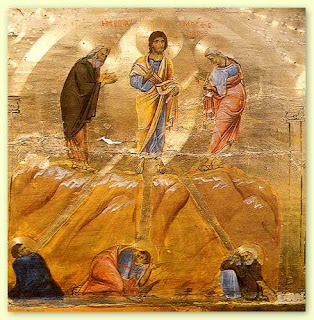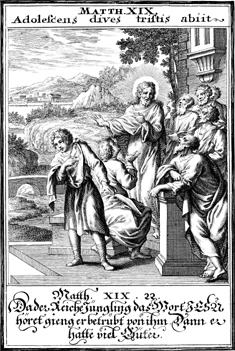and he was transfigured before them:
and his face did shine as the sun,
and his garments became white as the light.
Matthew 17:2 RV
Light is often used throughout the Bible to show God's presence.
When Moses was in communion with God on Mt Sinai,
the skin of his face shone by reason of his speaking with him.
Exodus 34:29 RV
And as Moses' radiant face gave a legitimacy to his experience, and his message. His face shone due to his communion with God, a reflection.
One can also read in the lives of the mystics, that when in communion with God, similar experiences occur: When St Teresa was writing The Interior Castle 'her face... shone with an unearthly splendour.'
On the other hand, Jesus face shone like the sun; it is the cause of the light, not a reflection. Jesus' radiance at the Transfiguration authenticates him as the new, and greater Moses.
God is light,He is revealed as he truly is, not being transformed into something new, or receiving some divine power; more it is a revealing of the heights of spirituality. As Bishop Westcott stated:
and in him is no darkness at all.
1 John 1:5 RV
"The Transfiguration is the revelation of the potential spirituality of the earthly life in the highest outward form"He goes on to state that Jesus in the Transfiguration:
"gives the measure of the capacity of humanity, and shews that to which He leads those who are united with him" The Historic Faith, p 256.One can only wonder why the Transfiguration is so neglected in western Christianity.












